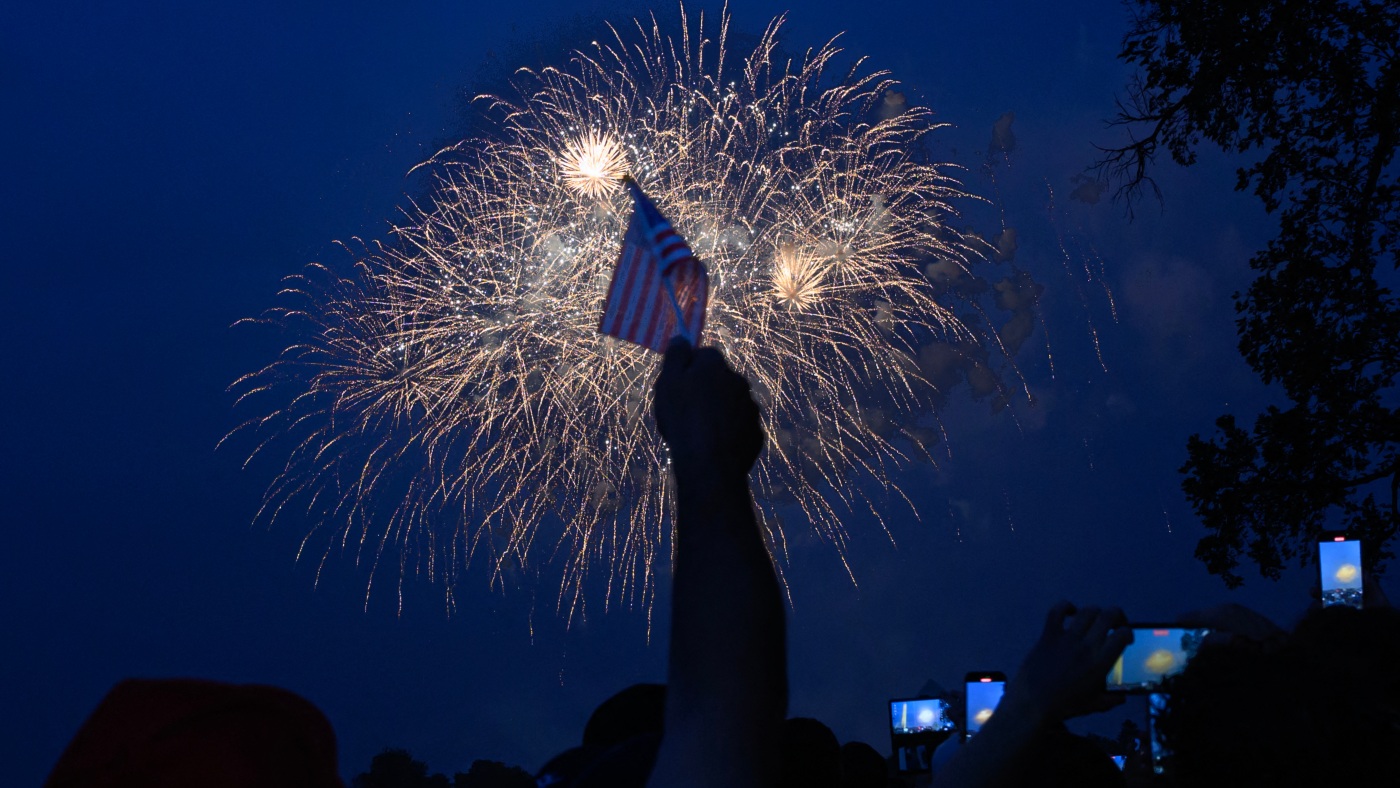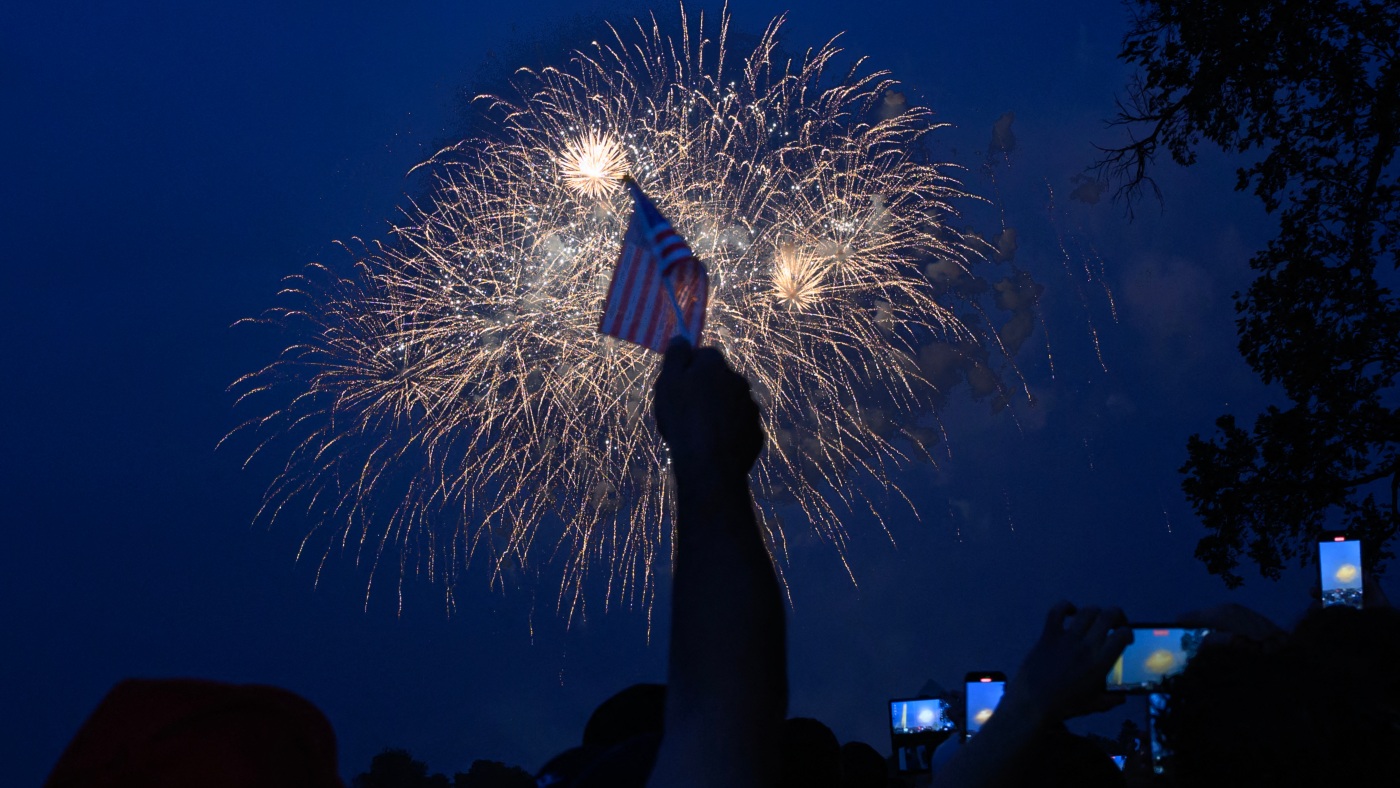The Fourth of July is a day that evokes images of fireworks, barbecues, and patriotic displays. Yet, beneath the surface of these celebrations lies a deeper, more complex concept: freedom. This year, National Public Radio (NPR) embarked on a thought-provoking journey, asking its audience to define what freedom means to them in the contemporary American landscape. The responses collected by NPR offer a revealing glimpse into the nation’s collective understanding of this fundamental value. This analysis explores the themes that emerged from NPR’s inquiry, examining the nuances, contradictions, and shared aspirations that define the American understanding of freedom today.
The responses to NPR’s question painted a multifaceted picture of freedom, illustrating that it is not a monolithic concept but rather a deeply personal and contextual one. Several key themes emerged from the collected responses, each reflecting a different facet of what freedom means to Americans today.
For many, freedom begins with the fundamental right to physical safety. In a world increasingly marked by violence, both domestic and international, the ability to live without fear emerged as a central component of freedom. This included freedom from gun violence, freedom from discrimination and hate crimes, and freedom from the threat of war. The anxiety surrounding these issues suggests a growing recognition that freedom is not merely an abstract ideal but is directly tied to the tangible realities of safety and security. The ability to walk down the street without fear of violence, to send children to school without worrying about shootings, and to live in a community free from the constant threat of conflict are all essential aspects of freedom that many Americans now prioritize.
The ability to make choices about one’s own life, free from undue coercion or interference, was another prominent theme. This included the freedom to choose one’s career path, the freedom to express one’s identity, and the freedom to make decisions about one’s own body. This emphasis on self-determination reflects a desire for individual agency and control over one’s destiny, highlighting the importance of personal autonomy in the pursuit of a meaningful life. In a society where economic pressures, social expectations, and institutional barriers often limit choices, the ability to forge one’s own path is seen as a cornerstone of freedom. This theme also underscored the importance of bodily autonomy, particularly in the context of reproductive rights and healthcare decisions, which have become increasingly contentious in recent years.
Several responses emphasized the importance of freedom from discrimination and the right to equal treatment under the law. This included the freedom to live without fear of prejudice based on race, religion, gender, sexual orientation, or other personal characteristics. This focus on equality underscores the understanding that freedom is not fully realized until it is extended to all members of society, regardless of their background or identity. It calls for a dismantling of systemic barriers and prejudices that continue to limit opportunities for certain groups. The ongoing struggles for racial justice, LGBTQ+ rights, and gender equality all highlight the work that remains to be done in achieving true freedom for all. This theme also touched on the importance of representation in media, politics, and other spheres of influence, as visibility and recognition are crucial components of freedom.
The right to participate in the democratic process, to voice one’s opinions, and to hold elected officials accountable was also a recurring theme. This included the freedom to vote, the freedom to protest, and the freedom of the press. This emphasis on civic engagement reflects a belief that freedom is intrinsically linked to the ability to shape one’s community and country through active participation in the political sphere. In a time of increasing political polarization and voter suppression efforts, the protection of these rights is seen as vital to maintaining a free and democratic society. The responses also highlighted the importance of an informed citizenry, as access to accurate information and critical thinking skills are essential to making meaningful contributions to the democratic process.
While many celebrated the ideal of freedom, others expressed a sense of disillusionment, pointing out the gaps between the rhetoric of freedom and the realities of inequality and injustice. This highlights a crucial aspect of the American narrative: the ongoing struggle to reconcile its ideals with its historical and contemporary realities. For some, freedom remained an elusive dream, limited by systemic inequalities and lack of opportunity. This included the challenges faced by marginalized communities in accessing quality education, healthcare, and economic opportunities. These disparities underscore the fact that freedom is not equally accessible to all, and that historical and ongoing forms of discrimination continue to hinder progress toward a truly equitable society. The responses highlighted the persistent wealth gap, the lack of affordable housing, and the barriers to upward mobility that many Americans face, particularly those from marginalized communities.
The legacy of slavery and racial injustice cast a long shadow over the celebration of Independence Day for many. The words of Frederick Douglass, “What to the Slave Is the Fourth of July?”, continue to resonate today, reminding us that the promise of freedom remains unfulfilled for those who continue to experience the effects of systemic racism. The need to confront this history and work towards genuine reconciliation is a crucial step towards achieving a more inclusive and just society. The responses also touched on the ongoing struggles for reparations, police reform, and racial justice, all of which are essential to addressing the historical and contemporary injustices that continue to limit freedom for many Americans.
The current climate of political polarization and social division was also identified as a threat to freedom. The erosion of trust in institutions, the spread of misinformation, and the increasing animosity between different groups were seen as undermining the foundations of a free and democratic society. This highlights the importance of fostering dialogue, promoting critical thinking, and working towards a shared understanding of the common good. The responses emphasized the need for civil discourse, media literacy, and a commitment to truth and facts in order to combat the divisive forces that threaten the fabric of American society.
While many responses focused on individual rights and liberties, some also emphasized the importance of freedom as a collective responsibility. This included the need to protect the environment, to care for the vulnerable, and to promote the well-being of the community as a whole. This perspective recognizes that individual freedom is intertwined with the common good and that a truly free society requires a commitment to social justice and environmental stewardship. The responses highlighted the importance of community engagement, volunteerism, and activism in creating a society where freedom is not just an individual pursuit but a shared endeavor. This theme also touched on the need for sustainable practices and policies that protect the environment, as the freedom to live in a healthy and habitable world is increasingly seen as a fundamental right.
Interestingly, NPR paired its exploration of freedom with a seemingly incongruous topic: the secret to a perfect summer pasta salad. This juxtaposition, while initially jarring, highlights a fundamental aspect of the human experience: the ability to find joy and connection even amidst complex and challenging circumstances. The simple pleasure of sharing a meal with loved ones, of savoring the flavors of summer, can serve as a reminder of the simple freedoms that are often taken for granted. This theme underscored the importance of finding moments of joy and connection in the midst of the struggles and complexities of life. It also highlighted the role of food and shared experiences in fostering a sense of community and belonging, which are essential components of freedom.
NPR’s inquiry into the meaning of freedom on the Fourth of July reveals a nation grappling with its ideals, its history, and its future. The diverse voices captured in the responses reflect both the enduring appeal of freedom and the ongoing challenges of achieving it for all. The future of freedom in America depends on our collective commitment to upholding its principles, confronting its contradictions, and expanding its reach. This requires a willingness to engage in difficult conversations, to challenge injustice, and to work towards a more inclusive and equitable society. It demands a renewed commitment to civic engagement, to critical thinking, and to the pursuit of a common good that transcends individual interests. Freedom is not a static concept to be passively received, but an active endeavor to be continuously pursued and defended. As we move forward, let us remember that the pursuit of freedom is not merely a celebration of the past, but a call to action for the future. The responses to NPR’s inquiry serve as a reminder that freedom is a living, evolving concept that requires constant vigilance, reflection, and action to ensure that its promise is realized for all Americans.








